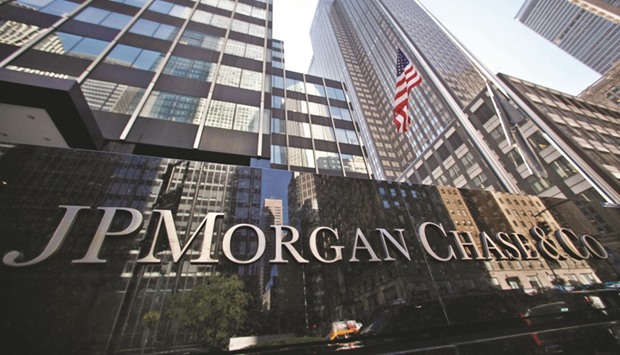Propelled to the top of emerging-market bond league tables for the first time in a decade by a Middle Eastern borrowing binge, JPMorgan Chase & Co now sees Europe’s deepening political crisis stoking record issuance into next year.
Governments in developing countries will probably raise more than $120bn on global debt markets in 2017 following a similar volume this year, Stefan Weiler, JPMorgan’s head of debt capital markets for central and eastern Europe, the Middle East and Africa, said in an interview.
Britain’s vote to exit the European Union and looming elections in the US, Germany and France make it harder for the Federal Reserve to raise interest rates, buying time for emerging-market borrowers to sell bonds before costs increase. JPMorgan did more business for governments than Citigroup and Deutsche Bank this year after co-organising record-sized deals for Argentina in April and Qatar in May. It was one of three chosen for Saudi Arabia’s debut offering, people familiar with the plans said June 27.
“Brexit volatility may take the Fed rate rise off the table, and that has always been the biggest fear among emerging-market borrowers,” said Weiler, 42, who joined JPMorgan in 1999 in London. “Interest rates will remain low, which means higher-yielding emerging-market debt should be attractive and in demand.”
In the wake of the historic referendum on June 23, developing-nation bonds were swept up in a rally as investors sought refuge from near-zero interest rates and heightening political turmoil in Europe. That promises to give a second wind to sales already running at an unprecedented pace after governments raised $90bn in the first half.
On the heels of Qatar’s $9bn sale, the biggest-ever from the Middle East, other nations in the region are lining up their own mega deals. Saudi Arabia, which mandated HSBC Holdings and Citigroup along with JPMorgan, is considering raising at least $10bn within months, people familiar with the discussions said in June. Kuwait will offer up to $9.9bn, according to its finance minister.
“Clearly the Middle East is the main growth region,” Weiler said. “The surge in issuance for many countries is to fund the shortfall of budget receipts that are the result of weaker oil prices.”
The world’s biggest oil-exporting region is trying to adjust to the 54% slide in crude in the past two years as the International Monetary Fund predicts the region’s fiscal shortfalls will spiral to $900bn by 2021.
JPMorgan was in pole position to capitalise on the Gulf borrowing binge in part due to pre-existing relationships as a key arranger of loans, the main funding outlet for Middle Eastern governments until this year.
The New York-based investment bank was catapulted to the top of the sovereign-bond underwriter rankings after managing 34 sales from the Middle East and Turkey to Indonesia and Mongolia since December. It rotated between third and fourth place over the previous five years, according to data compiled by Bloomberg.
The issuance surge from a four-year low took JPMorgan by surprise. The bank predicted in December that volumes would shrink because of the commodity slump and slowdowns in some of the biggest emerging economies. It has since revised full-year sovereign bond forecasts upward four times to $127bn, about double the initial estimate.
Argentina’s $16.5bn bond sale also proved a boon for bankers after volumes shrivelled almost 30% last year. The Latin American nation returned to global capital markets for the first time since its 2001 default after patching up relations with creditors, raising an additional $2.75bn in a follow-up deal last week. One of the country’s provinces is also considering a debt sale this month.
While issuance surpassed expectations, the average fee paid by emerging-market governments fell to 10 basis points in 2016 from 13 in the previous three years, according to research by New-York based Freeman Consulting Services, based on regulatory filings. In the coming months, developing-world borrowers may start raising funds early to chip away at almost $500bn of debt coming due from 2017 to 2018. Since the Brexit referendum, the average yield on emerging-market sovereign debt has fallen 26 basis points to a three-year low of 4.44%.
“One can make a strong case for pre-financing this year given the political calendar in Europe next year,” Weiler said. “A prolongation of the very low interest-rate environment in the US will be conducive to additional borrowings.”

The headquarters of JPMorgan Chase & Co is seen in New York. Propelled to the top of emerging-market bond league tables for the first time in a decade by a Middle Eastern borrowing binge, JPMorgan now sees Europe’s deepening political crisis stoking record issuance into next year.
